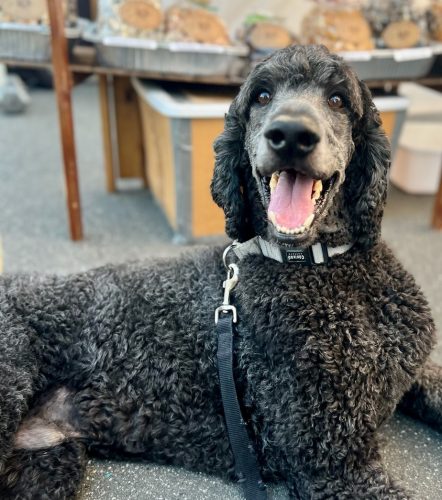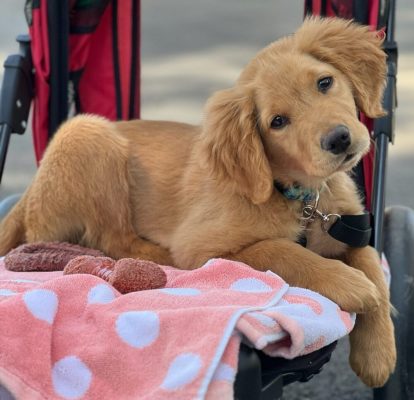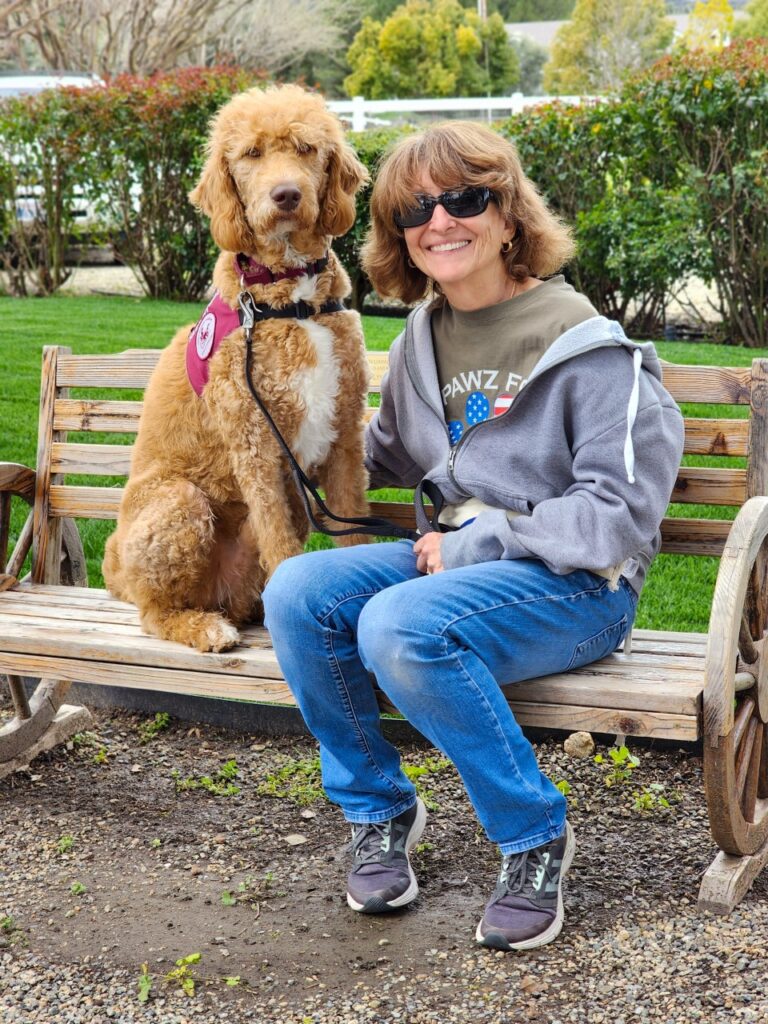Facility dog program
Here at CST, we take pride in our commitment to providing assistance dogs to facilities that have a significant impact on vulnerable populations.


What is a facility dog?
Facility dogs are specially trained canine assistants that aid professionals in their work with vulnerable populations. They can play a crucial role in various settings such as schools, medical clinics, courthouses, police or fire stations, and therapy centers. These dogs are extensively trained to perform specific tasks and collaborate closely with their handlers as a cohesive team, significantly enhancing the well-being of the clients they serve.
Their training equips them to perform a range of general tasks for individuals within the facility, including comforting individuals, providing mobility aid, backpacking medical related supplies, and undertaking various other essential tasks as needed.
What is a facility dog handler?
A facility dog handler, a single individual, offers a safe, loving, and stable home for the working dog while also acting as their advocate in various situations. Each night, the facility dog accompanies the staff member home, providing the dog with a respite from work and a nurturing family environment.
The Facility dog handler assumes responsibility for maintaining the facility dog’s training and ensuring their health. This duty necessitates the handler’s commitment to undergo training themselves, continuing to work with the dog until retirement, and undertaking the financial aspects of caring for the dog.
Who can be a facility dog handler?
In medical settings, the handler of Medical Facility Dogs typically holds a role in social work, psychotherapy, or allied health therapies, which may include disciplines such as music/art therapy, occupational therapy, or physical therapy. These professionals can be found working in various environments, including residential facilities, hospitals, clinics, dental offices, and more.
In school settings, the handler of a School Facility Dog typically serves as a teacher, counselor, or special educator. Their goal is to influence students’ social behavior, social-emotional competence, and empathy while also fostering learning and reducing stress.
In emergency settings, the handler of a facility dog typically holds a role at a fire station, police station, or 911 dispatch center.
In Courthouse Dog programs, the handler of the dog is typically a professional working within the legal field. Suitable handlers may include victim advocates, detectives, forensic interviewers, and assistant prosecutors.

How Do I Get Started?
To be eligible for our facility dog program, applicants must meet the following guidelines:
- Work at, or partner with, a facility where an assistance dog can provide support to vulnerable populations.
- Have the necessary permission from the facility for a dog to work there.
- Be committed to the long-term care and partnership with an assistance dog. We expect all applicants and clients to provide a safe and loving environment for their facility dogs, along with proper care, training, and veterinary care.
The application process typically follows these steps:
- Approval: Prior approval from employer is required with documentation (school, clinic etc.)
- Application: Complete a comprehensive application form found here, which will be reviewed by our team.
- Interview: Successful applicants will be invited for an interview to discuss the specific needs and expectations of the facility.
- Handling Assessment: As a part of your interview process, you will be asked to handle a trained CST dog to determine your individual training needs.
- Facility Visit: We will conduct a facility visit to ensure that the environment is suitable for an assistance dog.
- Matching: Upon approval, we’ll initiate the process of matching you with a suitable dog. This process can take up to 2 years, during which quarterly updates will be provided. Alternatively, you may opt for an outside certification program for your facility.
- Training: Our training program is a 2 week program with handler and dog.
- Certification: Upon successful completion of training and evaluations, your facility dog will be certified by CST.
- Ongoing Support: We offer ongoing support to ensure the success of your partnership with your facility dog.
For Veteran handlers participating in the Pawz for Wounded Vets, all fees are waived, making it free of charge. However, civilian handlers are subject to a $100 application fee to initiate the process. The cost of the facility dog for civilian handlers is $9,500. Additionally, subsequent, and annual ADI PAT Tests, along with dog health certification, necessitate a renewal fee of $150.
Travel and accommodations for training, whether at our facility in Murrieta, CA or at your facility, are at the expense of the applicant.

